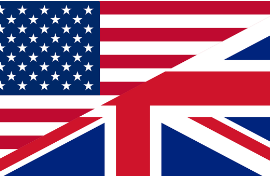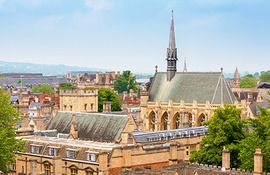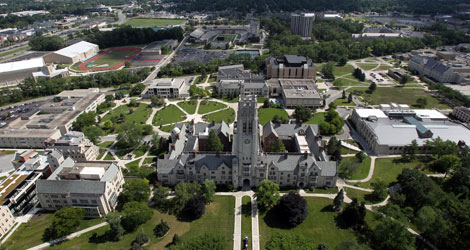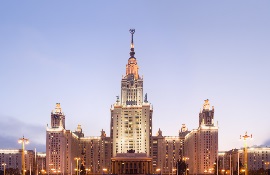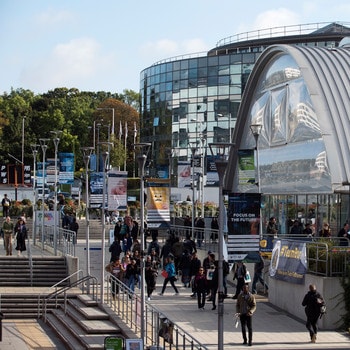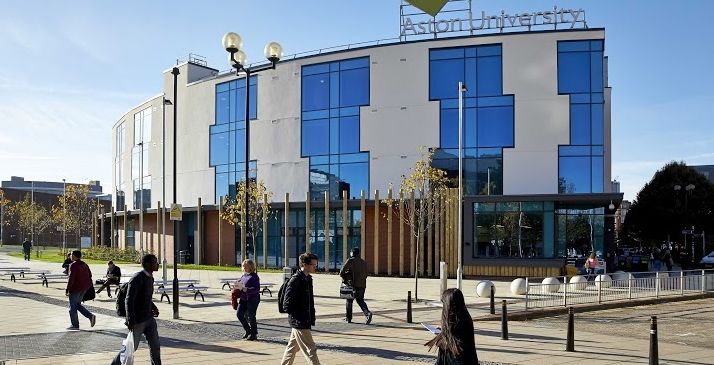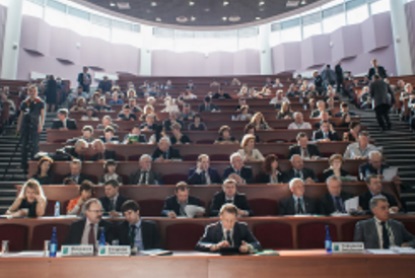1. School education in UK
Primary education in great Britain, Primary Education begins at 5 years, although many British students already in 3-4 years, go to the program of preparation for school. Primary education lasts six years, then, at the age of 11, pupils go to secondary school. Secondary education (Secondary education) in the UK lasts for five 5 years and is compulsory for students aged from 11 to 16 years. Most of the subjects studied in an English school, is required.
Graduates of British schools receive a General Certificate of Secondary Education, abbreviated as GCSE - General certificate of secondary education. According to the law of Britain, high school graduates can start working, enroll in a vocational College or a training program at the University.
Educational institutions - schools
Below are the types of schools offering compulsory education.
| No. | Level | School |
|---|
| 1. | Primary education | Junior schools, Preparatory schools |
| 2. | Secondary education | Secondary schools, Tutorial colleges |
The correlation with the Russian system of school education
As in Russia, in the UK 11-year school education is compulsory for children5 - 16 years. It consists of two stages: primary and secondary education, or Primary and Secondary Education.
Russian Certificate of secondary education - the British counterpart of the certificate of complete secondary education GSCE. Both of these documents do not give the right to enroll in the program of the first higher education in the UK. To enroll in a British University, you must complete the training program in the University A-levels or Foundation.
2. University pathway programs in the UK and professional education
For admission to the program follow-up, education, a British certificate of secondary education GSCE or equivalent - for example, the Russian Certificate of complete secondary education.
In the UK there are 2 types of training programmes in the University: A-levels and Foundation.
Training programmes in the University A-levels
At the end of high school and British students and foreigners who are planning the degree program, undergo a two-year program of preparation for University - A-levels. The availability of programs And levels are distinguished by the British education system from the Russian one.
For A-levels the student chooses the subjects to study based on the requirements of the University, in which he plans to do. After studying A-levels the student takes exams on the studied 3-4 subjects. These exams are entrance exams to the University.
British colleges offering A-levels, called "sixth-form" colleges of the 6th year, after 5 mandatory years of British secondary education.
Program preparation for admission to the University International Foundation
Foundation program for international students allows students from Russia and CIS to complement their secondary education and prepare for admission to a British University on the programs of the first higher just for one academic year. Sample program Foundation training in the University for foreign students of the University of Greenwich.
Vocational education in the UK
Professional program in the UK provide technical skills and experience needed for employment. Students can combine study and work. Many professional programs allow you to enroll in a British University on the first or second year of a higher education.
Educational institutions
Below are the types of UK institutions offering further education:
| No. | The program | School |
|---|
| 1. | A-levels | Sixth-form level at schools, Sixth-form colleges, Colleges of further education. |
| 2. | Foundation - training programmes in the University | Colleges of Further education, Colleges of Further and Higher education, Specialist colleges, Universities. |
| 3. | Professional qualifications | Colleges of Further education, Colleges of Further and Higher education, Specialist colleges. |
A full list of universities UK
The correlation with the Russian system of professional education
British further education compared with vocational education in technical schools and colleges of the CIS countries. The concept of "further" education includes all types of training after school in addition to higher education - professional programs and programs of preparation for admission to universities. English British further education called Further Education.
3. Higher education in the UK
Higher education in the UK called Higher Education and consists of 3 levels. Levels of higher education of Britain, mostly equivalent to the Russian higher educational levels – undergraduate, graduate and postgraduate.
Level 1: Bachelor is the first higher education in Britain
In the UK the first higher education called the undergraduate. If in Russia and in Kazakhstan, this level of training was officially introduced only in the 1990s, and a two-tier system of higher education – bachelor degree + master's degree was adopted in 2002, in British universities, such a system exists for several centuries.
Unlike Russia, the training period for most British programs bachelor degrees – 3 years. This is due to the fact that basic knowledge obtained in Russia in the first or second year of high school, get students of UK universities in colleges for A-levels or on the program Foundation.
Degree of bachelor in the UK
Among the most common degrees:
| Abbreviation | Transcript in English | The name in Russian | Sample program |
|---|
| BA | Bachelor of Arts | Bachelor of arts | BA Business Studies |
| BA (Hons) | Bachelor of Arts | Bachelor of arts | |
| BAcc | Bachelor of Accountancy | Bachelor of accountancy | International BAcc Accountancy |
| BArch | Bachelor of Architecture | Bachelor of architecture | BArch Architecture |
| BEng | Bachelor of Engineering | Bachelor of engineering | BEng Mechatronic Engineering |
| BSc | Bachelor of Science | Bachelor of science | BSc Business and Management Studies with Professional Palcement |
| BSc (Econ) | Bachelor of Science (Economics) | Bachelor of science (Economics) | BSc (Econ) Accounting and Management |
Educational institutions - bachelor
Below are the types of UK institutions offering programmes of a higher education.
| No. | School in Russian | School English |
|---|
| 1. | Universities state
Example: University of Sussex - 21 position in the ranking | State University |
| 2. | Universities private | Private University |
| 3. | Colleges of the state | State college of further and higher education |
| 4. | Colleges private | Private college of further and higher education |
Level 2: Master - master UK
In British universities masters and all programs of higher education after the first highest, are called postgraduate. This level is equivalent to the master level in Russia and other CIS countries.
The duration of most master's programmes – 1 year, the shorter of two years ' training in the Russian master's degree; studies in a British master's intensive and demanding.
The master's program can be divided into two groups:
- the curriculum (Taught programmes);
- programs focused on research activities (Research programmes).
With a diploma of bachelor or specialist, issued by the Russian University or other CIS country can apply for master's programmes at British universities.
The extent of the British judiciary
| Abbreviation | Transcript in English | The name in Russian |
|---|
| MA | Master of Arts | Master of arts |
| MA (Hons) | Master of Arts | Master of arts |
| MBA | Master of Business Administration | Master of business administration |
| MComp | Master of Computer Science | Master of computer Sciences |
| MEng | Master of Engineering | Master of engineering |
| LLM | Master of Law | Master of law |
| MSc | Master of Science | Master of science
Example: MSc International Accounting and Corporate Governance |
Level 3: PhD - fellowship in the UK
Postgraduate study in the UK, as well as the master's degree is a postgraduate level (postgraduate). On the web sites of universities, these programs are often designated as "Research programmes" or "PhD programmes". PhD programs in British universities, in fact, the Russian equivalent to Ph. D. programs. However, in terms of requirements and quality research work, these programs tend, rather, to the Russian doctoral studies.
In the UK most programmes leading to PhD are research projects involving visiting of lectures and training seminars in the beginning of the program. The supervisor, in the laboratory or in the Department which the student is preparing the thesis, identifies for the student the topic of research and provides the necessary resources for research.
Usually at the end of the research programme takes about 3-4 years. By the end of this period, the student must publish the results and write a dissertation on published materials.
What kind of education do I need for admission in a British graduate school
For admission to the PhD program required a master's diploma in Russian, British or other foreign University. Diploma issued by the Russian universities in Britain first recognized diploma of higher education, and in most cases, the diploma will not be sufficient for admission to graduate school.
The extent of the British postgraduate
The degree of doctor of philosophy, Doctor of Philosophy, PhD, is assigned to the student upon successful defense of the dissertation.
Also graduate and post graduate programs can lead to doctoral degrees in specific Sciences - for example: the doctor of education (Doctor of Education, EdD) or Doctor of business administration (Doctor of Business Administration, DBA).
The main difference of the program Doctor of education Doctor of philosophy in education (PhD in Education) is that the first program allows you to cover a wider range of subjects related to education, and to focus on one research problem at the end of training.
The degree of DBA also is a research degree. Such programs are aimed at the development of the theory and practice of business administration and management.
Educational institutions PhD program
With the rare exception of the PhD program and other research programs are offered in major multi-disciplinary universities with highly qualified scientific and teaching staff, extensive research base and significant research budgets. About how to attend graduate school in the UK, read here.
Based on the materials Quality Assurance Agency (QAA), OECD Thematic Review of Tertiary Education – Country Background Report: UK The European Educational Directory.


